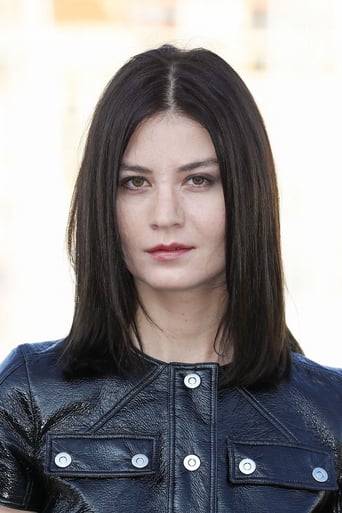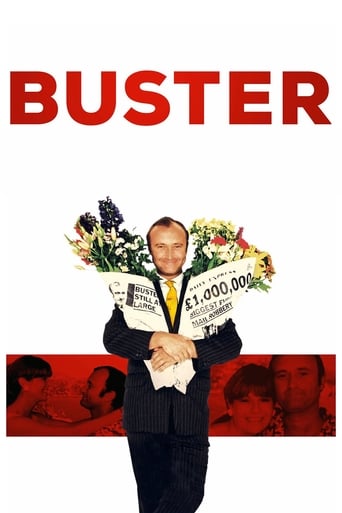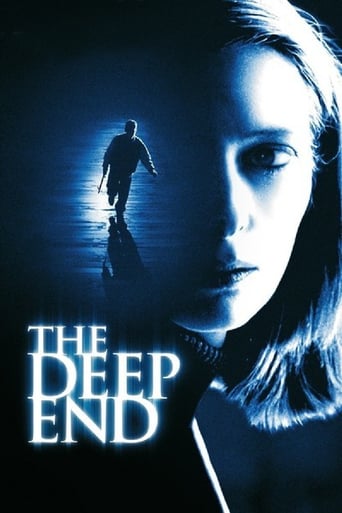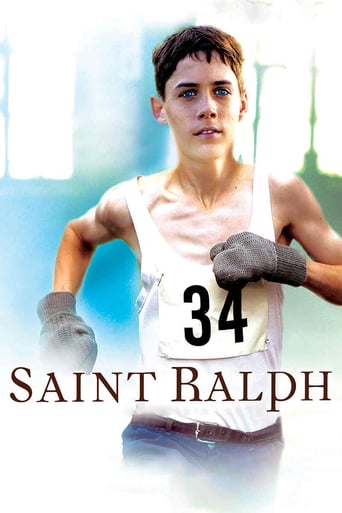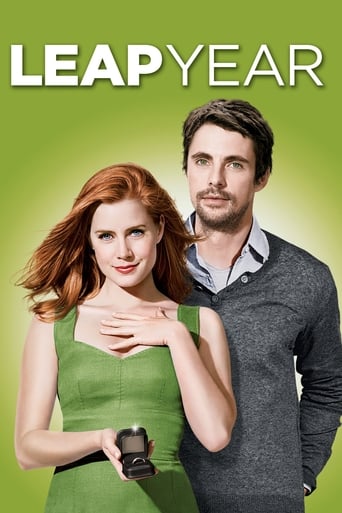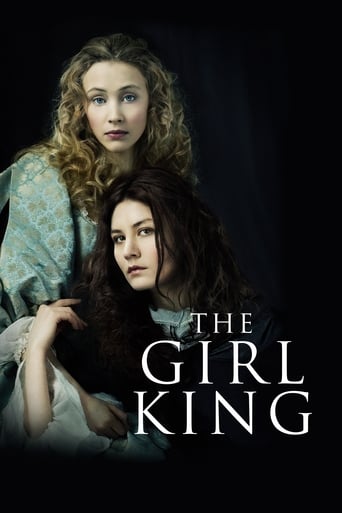
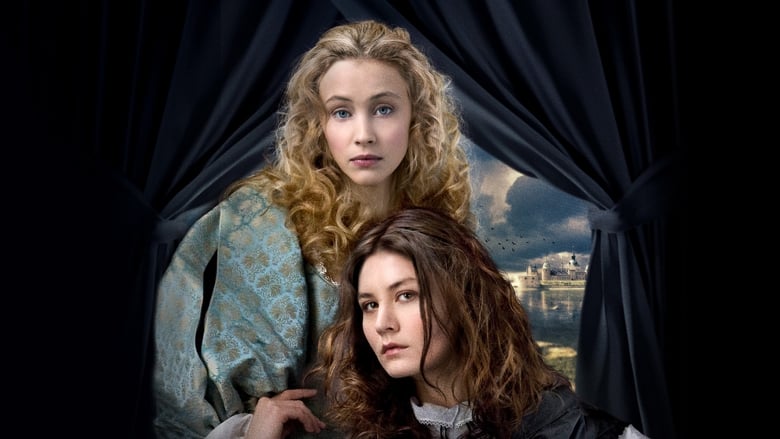
The Girl King (2015)
A portrait of the brilliant, extravagant Kristina of Sweden, queen from age six, who fights the conservative forces that are against her ideas to modernize Sweden and who have no tolerance for her awakening sexuality.
Watch Trailer
Cast


Similar titles

Reviews
This film is laughable. First off, let me just say that there is something very exotic looking about the actress portraying Queen Kristina. This "Malin Buska" actually seems talented for the role, good show of emotions paired with masculine undertones and dominant-aggressive behavior. There is also something very attractive about her being fluent in many languages, and her ever-so slight accent when speaking English. Ebba Spare, on the other hand, otherwise known as "Belle", seems way too submissive in nature (even though she is a servant) and deserved more lines throughout the entire script. After watching the movie I barely remembered she was even in it until I read the cast again. But she looked more of like a doll on display rather than a living, breathing character. Kristina's advances towards her were very cringey. The whole movie seems rushed and much too fast-paced for my liking, or anyone's, for that matter. The message is pretty clear, but the delivery seems like they were given only a single evening to rehearse all of it. Felt a lot like a costume play, not a genuine royalty presentation such as it was done in Magnificent Century (Turkish) and The Tudors (British), and while these two were a televesion series, they should provide a role model for how all monarch-based flicks should appear and be viewed as. Also, as a side note, I think the way Kristina cut her hair near the end of the story was absolutely horrific and truly don't think that kind of a transition was necessary. All in all, an excellent story put into a less-than-mediocre visualization of all the "issues" going on in pre-Industrial Scandinavia. By no way is this the performer's fault, it's the directors producers that tend to nullify the end result of such a glamorous, touching story. But honestly, pretty actressess don't cover up the obvious peresence of spoiled and unskilled movie-making.
A biographical film set in the 17th century about the queen of Sweden. If a film was made based on the real means it has to be something very important thing to tell us like about the person or the historical events surrounding that person. It is a good film to learn the history of that part of the world if you do not belong there, and even for the natives with less knowledge about it. Multi- nationally produced film with a decent cast and production in the English language despite a Scandinavian tale.Besides, it is also a lesbian theme and one of the oldest real account I have seen in a film. Even today, not the whole world accepts it with the open arm. So on that perspective, I was curious about the film. Not to know how the film was made, but how they are, the real people dealt with such sexual concept in those days. Particularly, how the people around reacted to it. On that topic, the narration was not explicit. That means watching it expecting one of the best among its kind is a disappointment. But the film offers more from other angles of importance.After her father's death, the young Kristina was trained all her childhood to be the next ruler of the Sweden. When she came of age to take the crown, her aim is to mark the presence of Sweden all over the Europe. She's a fine sword woman, but also very interested in philosophy and art. But she has never been so confused as one day when she felt something for a woman in her court. She begins to learn more about it from an expert and on the other side, her duty to the nation and its people seems not getting better. How the fate of Sweden and her personal life collides covered in the remaining parts.❝I know how to set a bear trap, how to clean a musket, but I don't know how to place my lips on yours.❞The film was not received well. Critically failed, but it was not that bad if you ask me. Yes, it was boring in parts, due to lack of progression. There's lots of things happened in the story, yet seems was not enough to impress its viewers. Especially switching between national duty and personal affairs strongly collides. Thus leaving both the subjects behind half baked. The real events took place for decades was put into a hundred minutes film did not justify. It's particularly about picking the right story segment to add in the screenplay and the some of the parts looked fine, but not the overall film.On the other hand, some people might find it a propaganda. Protestants, Roman Catholic, I don't know which way it leans, but started with one way and ended with another. So it could be the end that counts. On the humanitarian ground, morally, all looked fine to me. So if that's what made this film to become prey, then it's a totally wrongly judged. Otherwise the film is acceptable for being a biopic, telling the truth. Of all the kings and queen of the world we learnt about, Kristina is different and one should know about her for that. I feel she was very modern and modern in the wrong century.Born in the royal family, had all the power, it's very sad how her fate has changed at the end. But that's not the end of her tale. There's more to reveal, though this film covered only that takes place in the Sweden and being the ruler. I'll be happy if a sequel was made to tell her latter life and self-discovery. I'm sure it would be more a philosophical, but some people might raise the voice propaganda. Since this flick did not do well, that's not going to happen, I guess.One of the reasons I wanted to watch it was Sarah Gadon. She was in one of the main roles, but had a less preference. The other actress was really good and she was almost in every frame of the film. It might not be the best film to represent the LGBT, but it had its share and definitely a decent film from all the other angles. Should have been better, that's what those who saw it would say and so am I. Once watchable, but it does not have quality to I say the word, recommended!6/10
Finnish screenwriter, producer and director Mika Kaurismäki's feature film which he produced and which was written by American literary translator Linda Gaboriau and Canadian screenwriter Michael Marc Bouchard, is inspired by a play and real events. It premiered in Canada, was shot on locations in Finland and Germany and is a Finland-Canada-Sweden-Germany-France co-production. It tells the story about a Swedish foster child named Christina Augusta (1626-1689), born in a royal castle called Three Crowns (1697) in Stockholm, Sweden into the Swedish Empire (1611-1721), made queen-elect (1632) and sovereign in (1644).Distinctly and precisely directed by Finnish filmmaker Mika Kaurismäki, this quietly paced and somewhat fictional tale which is narrated mostly from the protagonist's point of view, draws a concentrated portrayal of a majestically educated Queen of Sweden, Princess of Finland, Duchess of Estonia and Lady of Ingria and Wismar who had a lady-in-waiting and foster mother surnamed Leijonhufvud (1639-1644), was crowned King of Swedes, Goths and Vandals and who relinquished her rule, abdicated, went to Innsbruck, Tyrol in Austria and named herself Christina Alexandra (1654). While notable for its atmospheric milieu depictions and cinematography by cinematographer Guy Dufaux, this dialog-driven and narrative-driven story about interdependence and autonomy and the distinct distinction between a human being and a religion was made more than eight centuries after a town called Stockholm (1252), seven centuries after Heidelberg University (1386) in Germany, five centuries after an Italian 16th century painter's work portraying an Italian consecrated virgin forenamed Lucia (1521), the House of Vasa (1523-1672), an English ship named Mary Willoughby (1536), Danviken Hospital (1558-1861), a liturgy called "The Red Book" (1577), the quote: "Uneasy lies the head that wears a crown." from Henry IV, Part II (1597), four centuries after the Protestant Union of Germany (1608-1621), the Catholic League of Germany (1609-1635), a Swedish confidant named Axel Gustafsson Oxenstierna (1583-1654) became Lord High Councillor of Sweden (1612), the Second Defenestration of Prague (1618), a Scottish-English Electress of Palatine (1085-1803) named Elizabeth Stuart (1596-1662) was crowned Queen of Bohemia (1619), Great Children's House (1624-1785) in Queen Street (1639), Stockholm, in Sweden, the Instrument of Government (1634), a Swedish countess called Catherine of Sweden (1548-1638) was appointed (1636) guardian of the child of a German Queen Dowager named Maria Eleonora of Brandenburg (1599-1655), Battle of Prague (1648), the Peace of Westphalia (1648), a Swedish courtier and maid of honour named Ebba Magnusson Brahe (1596-1674) petitioned Queen Christina and thereby succeeded in creating a city called Jacobstad in Finland (1652), four centuries after Accademia degli Arcadi (1690) in Rome, Italy, a poet, in a poem, possibly created Mother Svea (1672), three centuries after an English-Scottish gardener named Philip Miller (1691-1771) named a life Acacia (1754), a Swedish physician described a life called the White Butterfly which he named Pieris rapae and the yellowhammer (1758), Stockholm Palace (1760) and a Swedish stage actress named Ester Lovisa Sofia Augusti Solomon (1756-1790) became a court singer (1773) and the Catholic Church in Sweden (1781).Made three centuries after a locality was named Vilhelmina (1804) after a German Queen consort named Friederike Dorothea Wilhelmina of Baden (1781-1826) who in 1797 was married per procura, the House of Bernadotte (1810), a Danish poet nicknamed Mother Koren referred to herself as "the noble abused foster daughter." (1814), two centuries after Wallin Girl's School (1831-1939) in Sweden, a Swedish Illis Quorum recipient named Carin Sophie Adlersparre (1823-1895) attended a finishing school (1836-1838), a Swedish instrumentalist named Marie Pauline Landby Åhman (1812-1904) started working (1851) at the Royal Swedish Orchestra (1526), a Scottish-Swedish governess named Jane Miller Thengberg (1822-1902) created a Girl's School for education of women teachers in Uppsala, Sweden called Klosterskolan (1855-1863), Riksdag (1866) in Sweden, an Icelandic painting called "Lady of the Mountain" (1866), Långholmen Prison (1880-1975), the birth of a Swedish chairperson named Signe Wilhelmina Ulrika Bergman (1869-1960) who participated in the Sixth Conference of the International Women's Suffrage Alliance (1911), an English art model named Lady Edith Villiers (1841-1936) became Lady of the Bedchamber (1895), a Swedish Madame named Gertrud Virginia Adelborg (1853-1943) authored a writing regarding women's political right to vote (1898), a Swedish poet lived at a place nicknamed the Blue Tower (1908-1912) and a royal UK training ship named HMS Clio (1858-1919) was certified for the reception of boys (1908), a term called the Electra complex (1913), ninety-four years after a Swedish social worker named Nelly Maria Thüring (1875-1972) became a member of the Riksdag (1921), eighty-two years after a feature film starring a Swedish actress named Greta Lovisa Gustafsson (1905-1990) called "Queen Christina" (1933), sixty-nine years after a Swedish author named Elin Matilda Elisabet Wägner (1882-1949) who was a teacher at Fogelstad Citizen School for Women (1922-1954) became a member (1944) of the Swedish Academy (1786), a singer with names meaning foreign and dweller in the valley sang: "Alas my love you do me wrong to treat me so discourteously I sent thee kerchiefs for thy head ... that made thee be our harvest queen fare thee well, adieu " (1959), thirty-nine years after the Instrument of Government (1974), a Swedish author surnamed Norén wrote: "Song about woman's revolting roles" (1976), ten years after Equal Pay Day (2005), seven years after a voice sang within the mirror's edge: " no shadows red lights let it racing through " (2008), contains a great and timely score by composer Anssi Tikanmäki.This versatile retelling which is set in Sweden in the 17th century and where an Empress regnant of peace silences those at Her Majesty's Pleasure asking for a successor by committing a Most Excellent act where she declares her first cousin her son, is impelled and reinforced by its cogent narrative structure, substantial character development, rhythmic continuity, comment by Her Majesty: "I will have a private audience with whom I please." and the immediate acting performances by Swedish actress Malin Buska and Finnish actress Laura Birn. A dynastic narrative feature.
I caught this film entirely by accident, with zero expectations or knowledge of the subject matter. I am unqualified to speak to the historicity of the events. But if it is close to historical events, what a beautiful film was made of it. Dealing with politics and religion and feminism, it is a rare little gem. Christina, the Queen (actually "King") of Sweden from 1632 (age 6) until 1654, was tutored by a unique man, and grew up to be a young woman with curiosity about the world and a taste for life, she shook the institutions of the day, with an unkind mixture of success and failures. The film is mostly in English with a little French (accompanied by subtitles), the actors do a fine job, and I really appreciated the makeup team's subtle approach. I might have appreciated a script less focused on romance and more on personality and accomplishments, but then again, in our 20s, hormones can dominate all.


